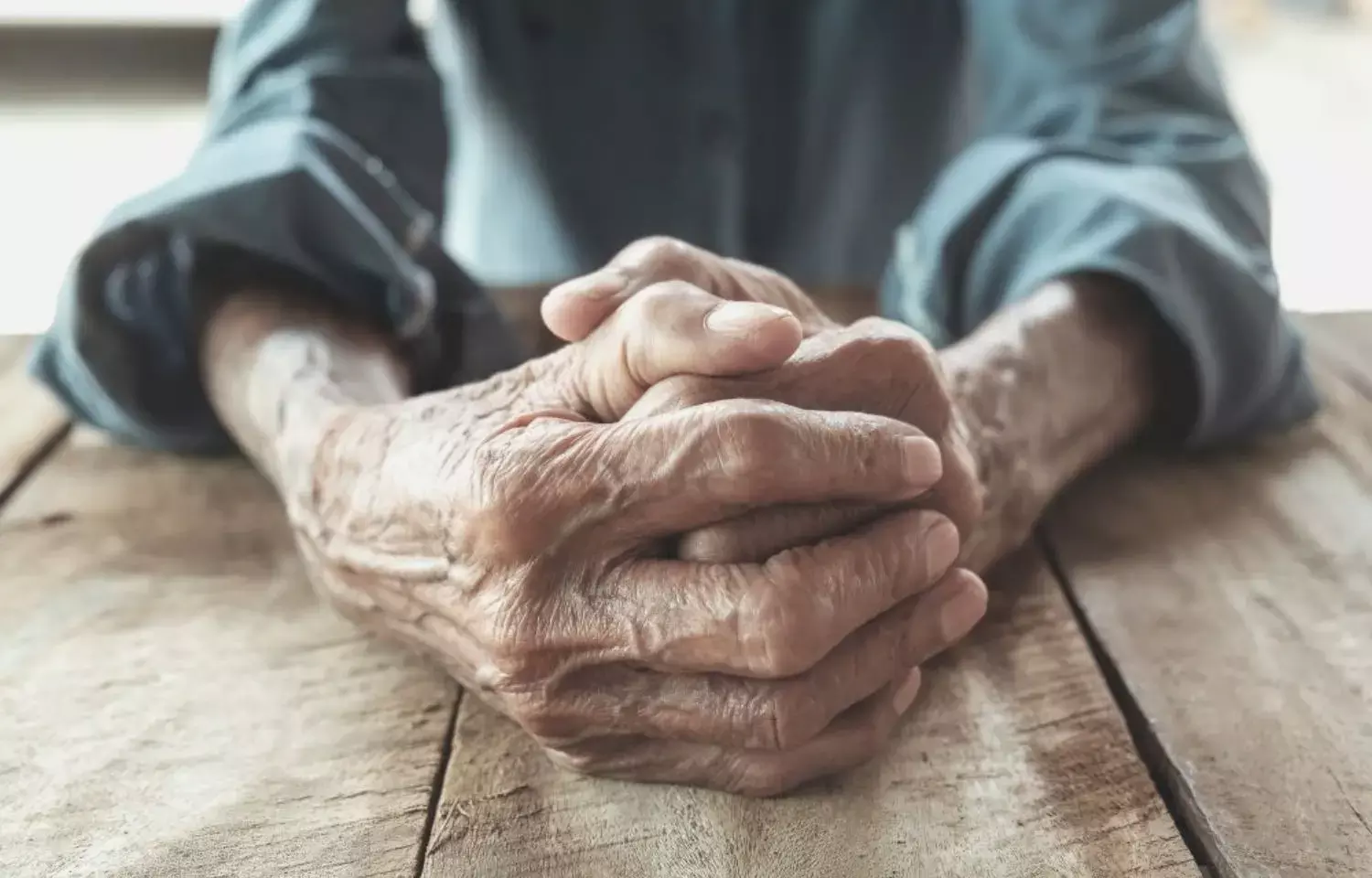- Home
- Medical news & Guidelines
- Anesthesiology
- Cardiology and CTVS
- Critical Care
- Dentistry
- Dermatology
- Diabetes and Endocrinology
- ENT
- Gastroenterology
- Medicine
- Nephrology
- Neurology
- Obstretics-Gynaecology
- Oncology
- Ophthalmology
- Orthopaedics
- Pediatrics-Neonatology
- Psychiatry
- Pulmonology
- Radiology
- Surgery
- Urology
- Laboratory Medicine
- Diet
- Nursing
- Paramedical
- Physiotherapy
- Health news
- Fact Check
- Bone Health Fact Check
- Brain Health Fact Check
- Cancer Related Fact Check
- Child Care Fact Check
- Dental and oral health fact check
- Diabetes and metabolic health fact check
- Diet and Nutrition Fact Check
- Eye and ENT Care Fact Check
- Fitness fact check
- Gut health fact check
- Heart health fact check
- Kidney health fact check
- Medical education fact check
- Men's health fact check
- Respiratory fact check
- Skin and hair care fact check
- Vaccine and Immunization fact check
- Women's health fact check
- AYUSH
- State News
- Andaman and Nicobar Islands
- Andhra Pradesh
- Arunachal Pradesh
- Assam
- Bihar
- Chandigarh
- Chattisgarh
- Dadra and Nagar Haveli
- Daman and Diu
- Delhi
- Goa
- Gujarat
- Haryana
- Himachal Pradesh
- Jammu & Kashmir
- Jharkhand
- Karnataka
- Kerala
- Ladakh
- Lakshadweep
- Madhya Pradesh
- Maharashtra
- Manipur
- Meghalaya
- Mizoram
- Nagaland
- Odisha
- Puducherry
- Punjab
- Rajasthan
- Sikkim
- Tamil Nadu
- Telangana
- Tripura
- Uttar Pradesh
- Uttrakhand
- West Bengal
- Medical Education
- Industry
Low-Dose Edoxaban lowers risk of embolism among Elderly with atrial fibrillation: JAMA

In a new study conducted by Shintaro Akashi and colleagues, it was found that older individuals with atrial fibrillation (AF) who took low-dose edoxaban (15 mg) had a lower risk of stroke or systemic embolism than those who took a placebo. The findings of this study were published in the Journal of American Medical Association.
Atrial fibrillation is more prevalent in elderly and debilitated people and rises with age. Data on the effectiveness of oral anticoagulants (OACs) in extremely old individuals with AF who are ineligible for traditional anticoagulant therapy, however, are scarce. In order to evaluate extremely low dosage edoxaban (15 mg daily) with placebo across frailty status, including each of the 5 frailty assessment criteria, among AF patients participating in the ELDERCARE-AF trial, this study was carried out.
This is a cohort analysis using data from ELDERCARE-AF, a double-blind, multicenter, randomized, placebo-controlled phase 3 investigation of Japanese patients with AF 80 years of age or older who were ineligible for OACs at dosages allowed for stroke prevention due to their significant bleeding risks. Edoxaban or a placebo was randomly given to eligible patients (1:1). The last patient was followed up on December 27, 2019, and the study ran from August 5, 2016, to November 5, 2019. The period of data analysis lasted from February 2021 to February 2022. Major bleeding served as the key safety endpoint while the composite of stroke or systemic embolism served as the primary effectiveness endpoint.
The key highlights of this study were:
1. 984 patients in all were randomly assigned to receive therapy, and 944 of those patients were counted in the study.
2. The estimated incident rates (SE) for stroke or systemic embolism in the placebo group were 7.1% (1.6%) for the frail group and 6.1% (1.3%) for the non-frail group per patient-year.
3. Edoxaban had no interactions with frailty status or frailty assessment parameters but was linked to decreased stroke or systemic embolism event rates.
4. There was no heterogeneity with regard to frailty status, but major bleeding and major or clinically significant nonmajor bleeding episodes were numerically greater in the edoxaban group than in the placebo group.
5. There was no relationship between the frailty state of the participants in the edoxaban and placebo groups, despite the fact that both all-cause death and net clinical composite result happened more frequently in the frail group than in the nonfrail group.
In conclusion, regardless of frailty status, once-daily 15-mg edoxaban was linked to a lower incidence of stroke or systemic embolism among Japanese patients with AF 80 years of age or older who were ineligible for regular OACs and may be a feasible therapy choice for these individuals.
Reference:
Akashi, S., Oguri, M., Ikeno, E., Manita, M., Taura, J., Watanabe, S., Hayashi, T., Akao, M., Okumura, K., Akishita, M., & Yamashita, T. (2022). Outcomes and Safety of Very-Low-Dose Edoxaban in Frail Patients With Atrial Fibrillation in the ELDERCARE-AF Randomized Clinical Trial. In JAMA Network Open (Vol. 5, Issue 8, p. e2228500). https://doi.org/10.1001/jamanetworkopen.2022.28500
Neuroscience Masters graduate
Jacinthlyn Sylvia, a Neuroscience Master's graduate from Chennai has worked extensively in deciphering the neurobiology of cognition and motor control in aging. She also has spread-out exposure to Neurosurgery from her Bachelor’s. She is currently involved in active Neuro-Oncology research. She is an upcoming neuroscientist with a fiery passion for writing. Her news cover at Medical Dialogues feature recent discoveries and updates from the healthcare and biomedical research fields. She can be reached at editorial@medicaldialogues.in
Dr Kamal Kant Kohli-MBBS, DTCD- a chest specialist with more than 30 years of practice and a flair for writing clinical articles, Dr Kamal Kant Kohli joined Medical Dialogues as a Chief Editor of Medical News. Besides writing articles, as an editor, he proofreads and verifies all the medical content published on Medical Dialogues including those coming from journals, studies,medical conferences,guidelines etc. Email: drkohli@medicaldialogues.in. Contact no. 011-43720751


